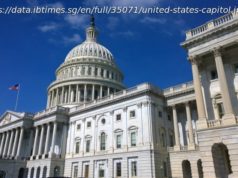Apple pulled several VPN apps from its App Store in China, which it said did not meet new regulation requirements.
Beijing appeared to have doubled down on its crackdown of the internet in China, with news emerging that over the weekend, Apple pulled several virtual private network (VPN) services from the local version of the App store.
Multiple VPN service providers, affected by the decision, slammed the move online, calling it a “dangerous precedent” set by Apple, which governments in other countries may follow.
VPN service providers received notification from Apple on July 29 that their apps were removed from the China App store for including “content that is illegal” in the mainland, according to a screenshot posted by ExpressVPN.
VPNs let users in China bypass the country’s famous “Great Firewall” that heavily restricts internet access to foreign sites. It also allows for privacy by hiding browsing activities from internet service providers. Data on GreatFire.org, a site that monitors censorship activity in the mainland, showed 167 of the top 1000 domains are blocked in China. Those include YouTube, Facebook, Twitter, Google and Instagram among others.
Golden Frog said its VyprVPN service is still accessible in China, despite the app’s removal from the App Store. ExpressVPN said users can stay connected to the open internet with the company’s apps for Windows, Mac, Android and other platforms.
Apple has recently stepped up business efforts in China. Earlier this month, the company announced the appointment of Isabel Ge Mahe in a new role of vice president and managing director of Greater China to provide leadership and coordination across Apple’s China-based team. Apple is also setting up its first data center in the mainland by partnering with a local company, in order to comply with tougher cybersecurity laws in China.
In a blog post, ExpressVPN said it was “disappointed” with Apple’s decision. It “represents the most drastic measure the Chinese government has taken to block the use of VPNs to date, and we are troubled to see Apple aiding China’s censorship efforts, ” the post read.
Golden Frog also said in a blog post that it was “extremely disappointed” in Apple’s decision. It added, “If Apple views accessibility as a human right, we would hope Apple will likewise recognize internet access as a human right (the UN has even ruled it as such) and would choose human rights over profits.”
The move was also criticized by others, including U. S. whistle-blower Edward Snowden in a tweet.
“Earlier this year China’s (Ministry of Industry and Information Technology) announced that all developers offering VPNs must obtain a license from the government, ” an Apple spokesperson told CNBC. “We have been required to remove some VPN apps in China that do not meet the new regulations. These apps remain available in all other markets where they do business.”
To be sure, Apple’s removal of those apps is not the first time Beijing’s cyber regulators have gone after VPN providers. Recent reports said two popular providers — GreenVPN and Haibei VPN — stopped their services following a notice from the regulators. In fact, a number of VPN apps are still available on the local App Store as of Monday.
In January, the MIIT embarked on a 14-month campaign to “clean up” China’s internet connections by March 31,2018. In a notice, the ministry said that, while China’s internet access service market is facing “a rare opportunity for development, ” there are also signs of “disorderly development” needing to be rectified.
Among other services, the move also affected VPNs: The Ministry said those connections cannot be created without the approval of the relevant telecommunications authorities.
State-owned news outlet Global Times reported that a spokesperson for MIIT said at a press conference last week that foreign companies or multinational corporations that need to use VPN for business purposes could rent special lines from telecom providers that legally provide such services.
Previously, the Ministry had denied a Bloomberg report that it ordered major telco operators China Mobile, China Telecom and China Unicom to block individuals’ access to all VPNs by February 1,2018.
— CNBC’s Barry Huang contributed to this report.






